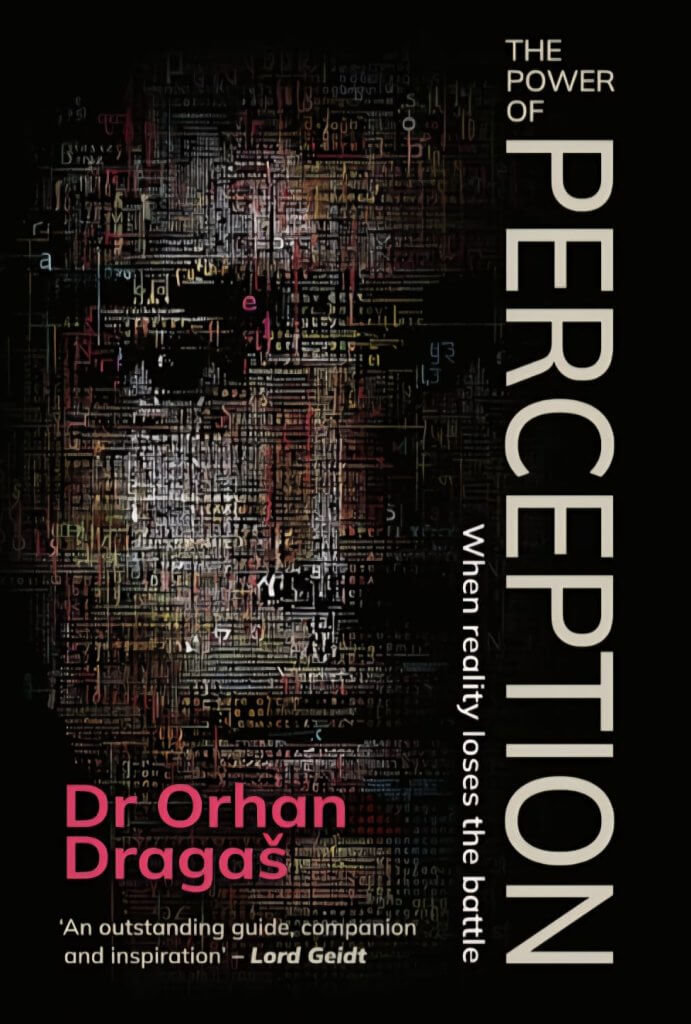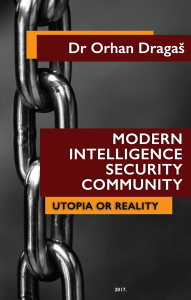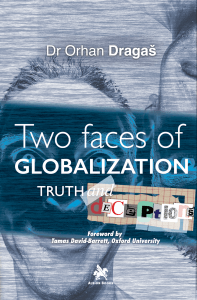The Power of Perception – When Reality Loses the Battle

The renowned British publishing house Chiselbury has released a new book by Dr Orhan Dragaš, The Power of Perception – When Reality Loses the Battle—a work that has already drawn attention from the international public and academic community.
The book explores one of the most crucial questions of the modern era — how perception has taken over the role of truth in societies that have lost their shared sense of reality.
Dragaš methodically analyses a world in which facts are no longer verified but multiplied through algorithms and emotions.
By combining philosophy, psychology, and media studies, he shows that the struggle between reality and perception is no longer theoretical — it is everyday and deeply personal.
In the foreword, Lord Christopher Geidt, who served for ten years as Private Secretary and senior adviser to Queen Elizabeth II, writes:
“Dragaš writes with candour and an awareness of his own limitations, recognising the weaknesses and biases that we share as both authors and readers. That awareness is a prerequisite for understanding a world in which clear-mindedness has become rare and prudence a luxury. His book offers not only a diagnosis but also a guide – a way to recognise our own susceptibility to manipulation and to reclaim the ability to think freely.”
Lord Geidt concludes that The Power of Perception is “an outstanding guide for all those who still believe that truth matters — and who refuse to turn away from it in the name of comfort or conformity.”
In his review, Professor Michael Goodman, one of the leading experts on intelligence and international affairs at King’s College London, writes:
“This is a book of exceptional importance and perfect timing. Dragaš has opened a subject that defines the political and social future of our era – how truth survives in a world governed by emotion, algorithms, and narrative. The book combines philosophical depth with analytical clarity, and demystifies what has too easily become accepted – that perception now holds greater authority than knowledge.”
Professor Goodman adds that The Power of Perception “should be essential reading for decision-makers, opinion formers, and for anyone who still believes that the distinction between fact and feeling remains the foundation of any free society.”
The Power of Perception – When Reality Loses the Battle is published in English, available in hardback, paperback, and e-book editions.
With this work, Dr Orhan Dragaš opens one of the defining discussions of our age — how much of reality we still recognise, and whether we truly want it back.
The book can be ordered directly from the publisher Chiselbury (https://www.chiselbury.co.uk/bookstore/p/the-power-of-perception),
on Amazon (https://www.amazon.co.uk/dp/B0FTJMMVC1/) ,
and found on Goodreads (https://www.goodreads.com/book/show/242368087-the-power-of-perception).
MODERN INTELLIGENCE SECURITY COMMUNITY, UTOPIA OR REALITY

The book, “Modern Intelligence-Security Community, Utopia or Reality,” was published in 2009, and the second, revised edition came in 2018. This study addresses the current role and organization of intelligence and security services and structures in a complex world, intertwined with a network of political, trade, cultural and other links. What is the role of intelligence and security services and systems in the world today, what are the goals of these, for each country, vital complexes, how are they organized, and what traditions they cherish? These are just some of the questions the book “Modern Intelligence-Security Community, Utopia or Reality” answers.
The author gives a detailed analysis of the work of the intelligence and security services of some of the most influential countries in the world – USA, Russia, Great Britain, France, Israel, Italy, as well as a careful review of intelligence and security in the Balkans. A special section is dedicated to exploring the possibility of an intelligence and security community at the European Union level. In this book, Dr. Orhan Dragaš specifically addresses the relationship between intelligence and security communities to
contemporary terrorism, as one of the greatest threats to modern humanity.
Due to its actuality and analytical approach, the book “Modern Intelligence-Security Community, Utopia or Reality” serves as literature in teaching international relations and security at universities in Serbia and Eastern Europe.
The book is available for purchase in bookstores:
DELFI
VULKAN
TWO FACES OF GLOBALIZATION – TRUTH AND DECEPTIONS

“Two Faces of Globalization – Truth and Deceptions” is Dr. Orhan Dragaš’s research into the state of globalization today and the possible directions for its development a decade after the 2008 global financial crisis. The author deals with key aspects of globalization today – economic, political, social and cultural cohesion in the world, in light of the remediation of the effects of the 2008 global crisis. He paid special attention to the three most important entities of contemporary globalization – the United States, the European Union, and China, analyzing their potential to influence the strengthening of global ties, but on the other hand, their potential to weaken and even bring them into crisis. The subject of this study is also contemporary political and social phenomena that are an integral part of globalization 4.0, such as, for example, populist movements around the world, or new media.
The author offers a balanced approach to contemporary globalization processes, denies their ideological character and proves that it is a process that changes its appearance but does not lose its intensity. Among the reviewers of this book, which has had two editions, are some of the biggest names in world economic and international relations theorists such as Steve H. Hanke, Daniel Lacalle, Martin Wolf, Sir Ivor Roberts, Neil Dooley, Jonathan Grant, Emre Alkin.
The foreword for the second edition was written by Dr. Tamas David-Barrett, a professor at Oxford University.
The book is available for purchase in bookstores:
DELFI
VULKAN